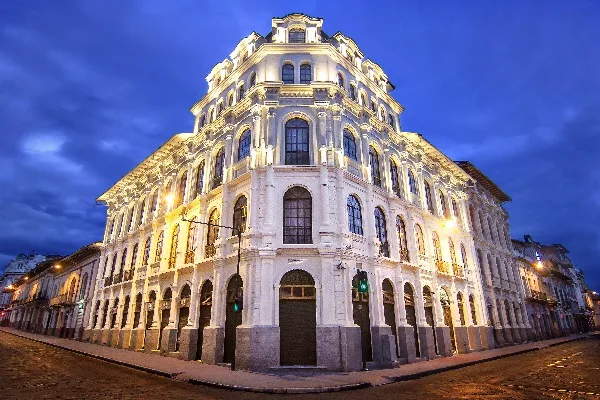Brazilian President blasts U.S. cyber-spying in U.N. speech; she has support from most Latin American leaders
By Aaron Morrison and Mimi Whitefield
Delivering a harsh indictment of U.S. cyber-surveillance, Brazilian President Dilma Rousseff on Tuesday called on the United Nations to get involved with helping nations safeguard themselves from cyber-snooping by other countries.
 “Information and telecommunication technologies cannot be the new battlefield between states,” said Rousseff, who delivered the opening address at the 68th U.N. General Assembly. “Time is ripe to create the conditions to prevent cyberspace from being used as a weapon of war, through espionage, sabotage, and attacks against systems and infrastructure of other countries.”
“Information and telecommunication technologies cannot be the new battlefield between states,” said Rousseff, who delivered the opening address at the 68th U.N. General Assembly. “Time is ripe to create the conditions to prevent cyberspace from being used as a weapon of war, through espionage, sabotage, and attacks against systems and infrastructure of other countries.”
Rousseff was responding to leaks by former NSA contractor Edward Snowden that indicated the U.S. National Security Agency intercepted her communications with Cabinet members as well as those of Brazil’s U.N. mission and Petrobras, Brazil’s state-run oil company.
“Personal data of citizens was intercepted indiscriminately,” she complained during her sharply worded and sternly delivered speech.
Such tampering, she said, is a “breach of international law and is an affront to the principles that must guide the relations among [countries], especially among friendly nations,’’ said the Brazilian president. Rousseff said it violated civil and human rights and showed lack of respect for national sovereignty.
So incensed was Rousseff about the NSA revelations that last week she postponed a state visit to Washington scheduled for October 23. President Barack Obama immediately followed her on the U.N. podium.
Rousseff has plenty of support among Latin American leaders. Juan Santos of Colombia sent a strongly worded protest to Washington following discloure of U.S. spying in his country and Rafael Correa of Ecuador has complained of the “slippery slope” of cyber-surveillance.
Reviewing matter
There was no immediate reaction from the United States on Rousseff’s address, but Obama’s U.N. speech included this nod to her concerns: “We’ve begun to review the way that we gather intelligence, so that we properly balance the legitimate security concerns of our citizens and allies with the privacy concerns that all people share.’’
Rousseff said Brazil had demanded of the United States “explanations, apologies and guarantees that such procedures will never be repeated.”
Obama has promised a review of NSA procedures, but so far Rousseff’s trip to Washington hasn’t been rescheduled. She rejected a U.S. explanation that its intelligence gathering is aimed at not only domestic security but also at protecting its allies against terrorism.
Brazil, Rousseff said, “knows how to protect itself. We reject, fight and do not harbor terrorist groups.”
In her speech, Rousseff also alluded to her own past as a guerrilla when she was captured and tortured by the Brazilian military dictatorship in the early 1970s, saying, “As many other Latin Americans, I fought against authoritarianism and censorship, and I cannot but defend, in an uncompromising fashion, the right to privacy of individuals and the sovereignty of my country.’’
Brazil isn’t the only nation caught up in the NSA flap. There are allegations that the NSA also snooped on the personal communications of Mexican President Enrique Peña Nieto and that German intelligence agencies cooperated with the NSA on digital surveillance.
Brazil plans to present proposals to the United Nations for the establishment of a “civilian multilateral framework for the governance and use of the Internet” that will ensure privacy and respect for individual human rights and neutrality of the network so it will be “guided only by technical and ethical criteria,’’ Rousseff said.
Bolivian President Evo Morales said her proposals should be “considered seriously.’’
“Three or four years ago, I said that U.N. headquarters should be moved because we don’t really feel safe here,” Morales said at a news conference. “The center of insecurity is the United States. In addition to that, they try to control and monitor as imperialists.’’
Oldest conflict
Colombian President Juan Manuel Santos used his opening day speech to ask for help in ending what he called the “oldest and last conflict in the Western Hemisphere,” and to defend the country’s 11-month old peace talks with the FARC guerrillas.
“What we are asking from the U.N. and the international community is to respect Colombia’s right, and the right of every nation, to pursue peace,” he said. “We ask you to keep accompanying us in this effort . . . and trusting that our decisions have never been against the international community’s needs.”
The FARC and the government have been meeting in Havana since last year but progress has been slow — only clearing one item on the six-point agenda. On Tuesday, Santos warned the rebels that the nation’s patience “is not infinite.”
“The time for decisions has come,” he said. “If we come out empty-handed, we will condemn our nation to many more years of bloodshed and pain.”
The government also announced that Uruguayan President Jose Mujica — himself a former guerrilla — offered to host eventual peace talks between Colombia and the smaller National Liberation Army, or ELN, guerrilla group. Both the FARC and ELN are considered terrorist organizations by Colombia and the United States.
Credit: The Miami Herald, http://www.miamiherald.com; Photo captions: Dilma Rousseff of Brazil and Juan Santos of Colombia





















